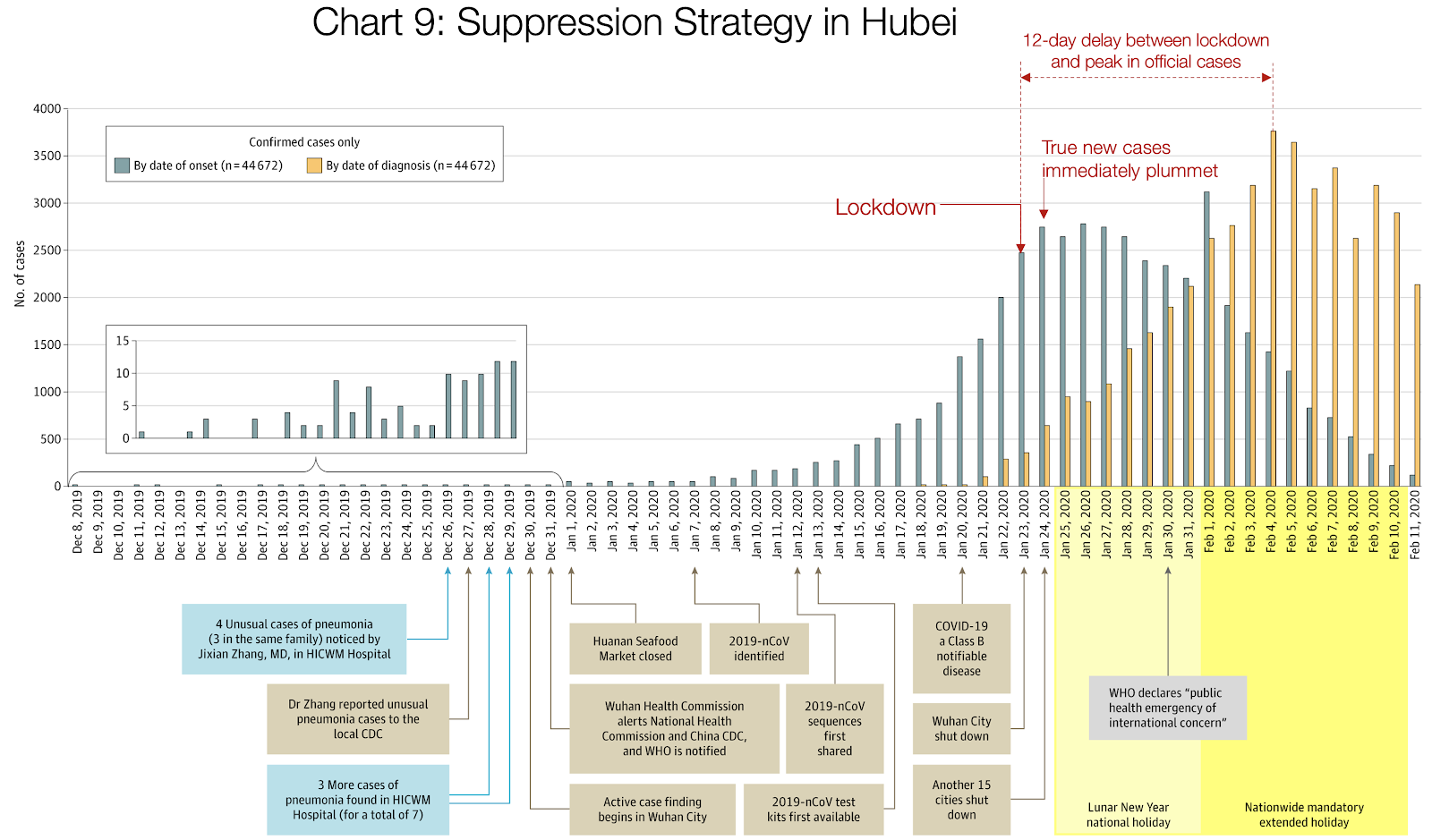Background
Very much is at stake in policymaking during the ongoing coronavirus outbreak. The dilemma faced by politicians is this: Failure to control the spread of the virus may cause severe overload in the health system and cause thousands of deaths, while on the other hand the control measures may cause an unprecedented economic depression. Different strategies have been used by different countries. At the time of writing, it remains to see which country has chosen the best strategy.
At the core of this is a problem of state estimation in a complex dynamic system with significant time delays, limited observability and several unknown parameters. If a country is to pursue any more refined strategy than absolute suppression or laissez-faire, then the infection control measures must be adapted to the situation at hand, based on estimates of the number of infections, infection rates, case fatality ratio etc.
Models of different levels of fidelity have been used in attempts to understand and predict the spread of the coronavirus. Other researchers have focused on estimating key parameters such as the reproduction number and the case fatality ratio. Estimating these parameters has been difficult, because the researchers have had to use non-representative sample populations (e.g., the predominantly old population onboard Diamond Princess).
 |
| Etimates of true and registered cases in Wuhan. From Pueyo (2020). |
Scope
The goal of this assignment is to develop closed-loop simulations of the infectious disease problem, including both simulation of the virus spread itself, the state- and parameter estimation needed for situational awareness, and infection control measures. While these results probably will come too late to be of much use in the current fight against SARS-Cov-19, the framework can be useful for preparations against future pandemics caused by slightly different viruses, and in assessing the robustness of the different infection control strategies. The work will build upon recent results from the NTNU COVID-19 Taskforce.
Proposed Tasks for the 5th year project
In the specialization project the main focus will be on building models for the epidemic, and investigating the feasibility of situational awareness. The following tasks are proposed for the specialization project:
- Conduct a study on relevant literature on epidemic modelling in general and the coronavirus outbreak in particular.
- Model the pandemic: Compare individual-based models with aggregate models. Define the state vector and underlying parameters.
- State estimation: Using limited and possibly non-representative data: Estimate and predict the number of infections and the effective reproduction number.
- Parameter estimation: Estimate the basic reproduction number and the case fatality ratio.
- Investigate how uncertainty in the different model parameters can affect the estimates. How reliable are the estimates? Perform consistency analysis.
- Write report.
Proposed Tasks for the master thesis
In the MSc thesis the goal is to investigate the suitability of different infection control strategies. The following tasks are included in the MSc project:
- Include socio-economic impacts in the model.
- Experiment with different epidemic control strategies in closed-loop simulation where the estimation schemes from the specialization project are used by the policymakers. In particular, strategies based on model-predictive control (MPC) should be investigated.
- Increase the complexity and fidelity by modeling interaction between countries, age groups etc.
Prerequisites
- The courses TTK4250 Sensor Fusion and TTK4220 Dynamics in Social Systems will both be very useful.
References
Pueyo, T. (2020). “Coronavirus: The Hammer and the Dance.”, Medium.com.
Favero et al. (2020): “Restarting the Economy While Saving Lives Under COVID-19.”, SSRN.
Ferretti et al (2020): “Quantifying SARS-CoV-2 transmission suggests epidemic control with digital contact tracing”, Science Magazine.
Johansen, P. A (2020): “Forskere kritiserer myndighetenes metode for smitteberegning”, Aftenposten.
Wilson, N. and Baker, M. G. (2009): “The emerging influenza pandemic: estimating the case fatality ratio.”, Euro Surveill.
Dorigatti et al. (2020): “Report 4: Severity of 2019-novel coronavirus (nCoV)”, Imperial College London COVID-19 Response Team.
Contact
Supervisor: Edmund Brekke and Thor Inge Fossen.